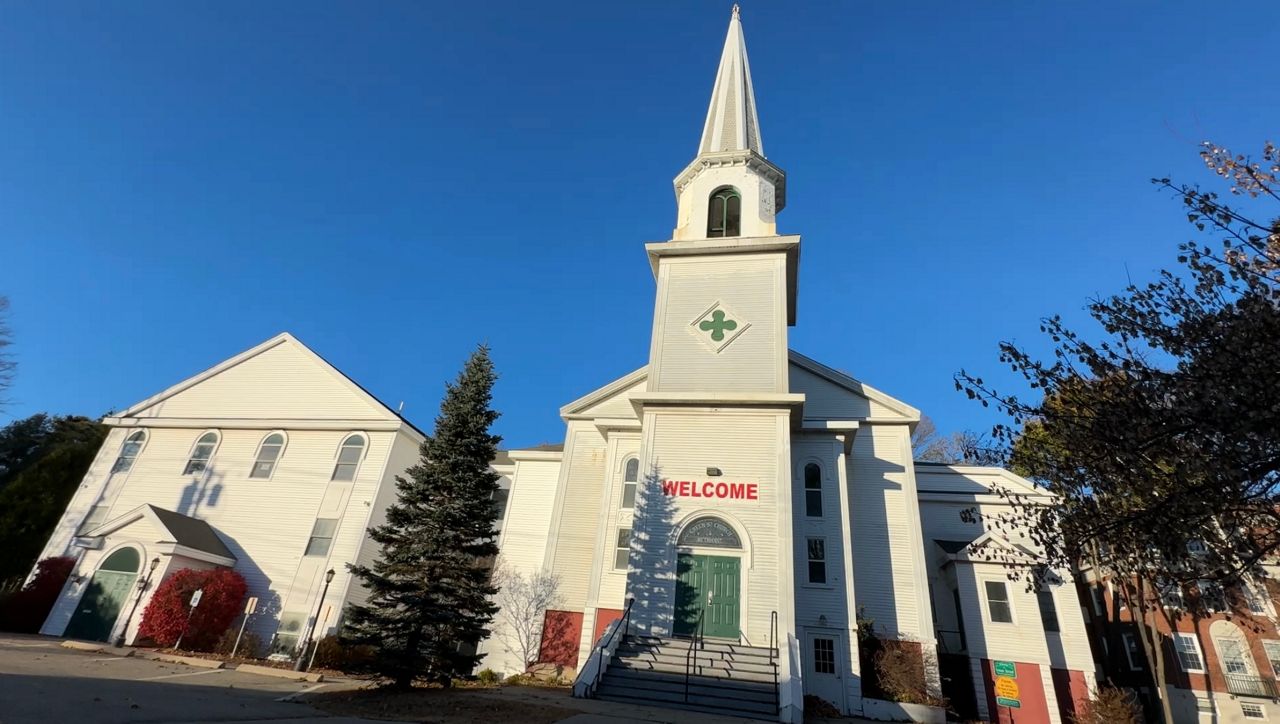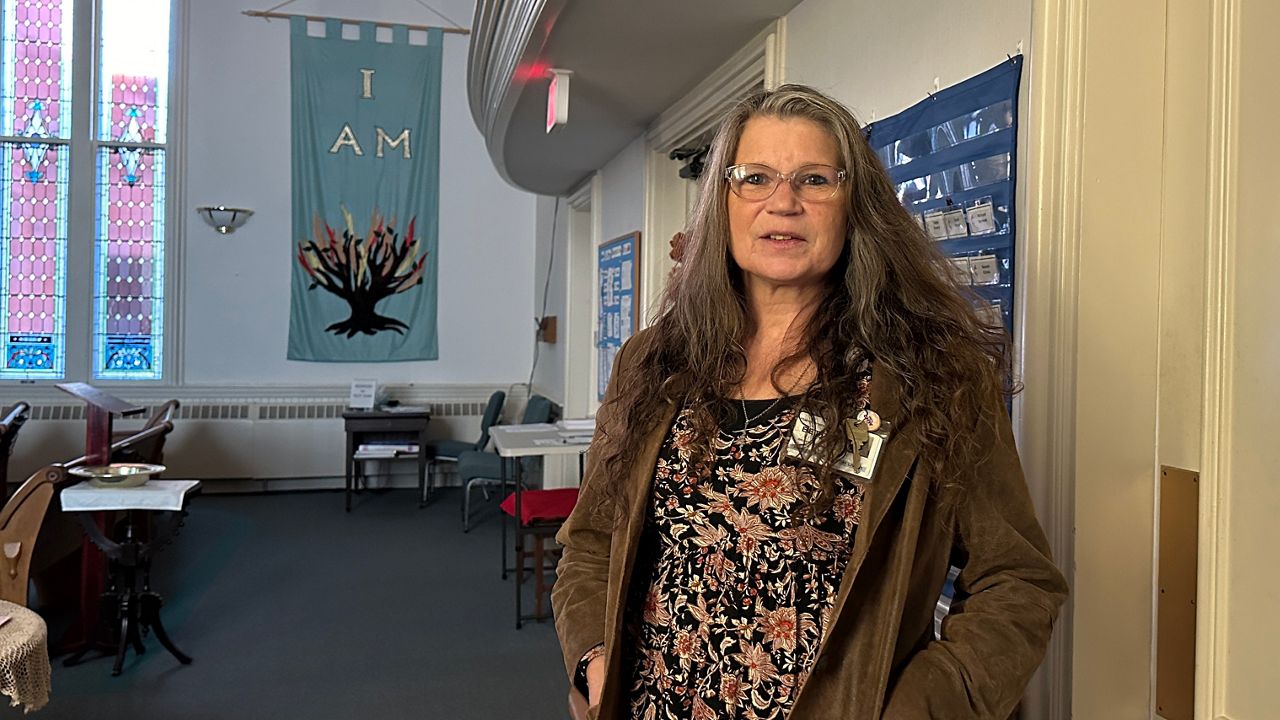Betty St. Hilaire’s passion for helping those in need is evident as she walks through the halls of the Green Street United Methodist Church in Augusta.
In this room, she envisions a computer lab so those who need to renew their food stamps or look for a job can do so.
Over here, she hopes to create a private space so those who need online mental health counseling can get it.
And in the beautiful sanctuary, where rows of pews now hold Bibles and hymnals, she sees a new use — a 40 bed shelter for those who have no place else to sleep.
St Hilaire leads a group called The United Community Living Center, which is working to get nonprofit status to create the shelter, along with 16 affordable supported housing units.
St. Hilaire, who also serves as chairwoman of advisory team for the Augusta Warming Center, estimates that 50-75 people are living on the streets in the city.
“They are people just like you’re a person and I’m a person,” she said. “Our goal is to figure out what are those dreams that these folks have and how can we help them move towards them.”
If they can raise the $650,000 needed to buy the building, they hope to open about a year from now. They may also do it in phases, opening each area as they are able.
The proposal is one of many attempts by city leaders across Maine to address a stubborn problem that’s spread across the state — homelessness driven at least in part by sky-high rents and a lack of affordable housing.
Just this week, Portland City Council voted to increase capacity at one of the city’s shelters by 50 beds. And developers announced a new project to build 30-50 apartments at the former Oxford Street Shelter.
In Bangor, city leaders recently asked those who had not engaged in outreach services to leave an encampment. Lewiston continues to struggle with how to address homelessness despite a strong push from the mayor and a committee that spent months studying the issue.
And Waterville briefly considered putting up yurts to help shelter its homeless population but abandoned the idea in favor of a temporary warming shelter and additional supports, according to the Morning Sentinel.
Back in Augusta, the city recently reopened its winter warming center, which can accommodate 30 people overnight, but does not provide additional services to help those dealing with homelessness, St. Hilaire said.
A former social worker in Lewiston who now manages community health workers at MaineGeneral Medical Center, St. Hilaire said she wants the new center to provide social, emotional and health care services to help people get back on their feet.

She said the idea for supported housing — rather than transitional housing — is that there are no time limits. Those supports can range from job training to mental health counseling to treatment for substance use disorder.
“Mental health services are hard to access even if you have the means, but there’s a good supply online,” St. Hilaire said.
Kevin Judkins, a local real estate agent and city council member, said the church offers a rarely seen opportunity because although the original structure dates to 1828, it’s been updated recently.
That means a sprinkler system, an elevator, lighted exit signs, a modern commercial kitchen and other amenities that will save the group money in the long run.
It also checks many of the boxes to meet city code, meaning the group will need only Planning Board approval when the time comes to move forward.
At nearly 16,000 square feet, the church offers plenty of space to grow.
The Rev. Angela Rotherham, lead pastor of the River Churches Cooperative Parish, said the building is putting too much of a financial strain on the congregation, which led to the decision to sell.
With an average worship attendance of 35, the church will look for a smaller place to gather but remains committed to Augusta, she said.
“With the sale of the building, they wanted to make sure they honored what they thought was the legacy of all those who came before them,” she said. “That was why they were looking for nonprofits so the building would still be an asset to the community.”
They also appreciate the flexibility of the sale, which gives St. Hilaire time to raise money and the congregants time to celebrate Christmas and Easter in their church.
“They need the time and we want to say a good goodbye,” she said.
As she looks forward to transforming the space, St. Hilaire recalled a time when she would ignore those who often gather at the west side rotary in Augusta to ask for money from passing motorists.
Not anymore.
“Once you see them and you know them you can’t not look at them,” she said. “Now I smile and I wave to them because I see them and I acknowledge them.”
For those who want to learn more about the project, a fundraiser and open house is set for 4-7 p.m. Nov. 28 at the church, which is located at 13 Green St.



